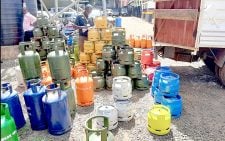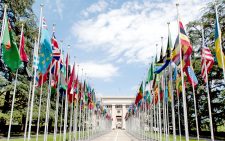Increasing charges in counties will stifle trade

Devolution heralded a new era by decentralising some government functions.
As a result, many parts of the country opened up, leading to increased trade, job creation and wealth. The benefits have, however, come at a cost to many businesses.
Understandably, since counties could not entirely depend on budgetary allocation from the National government, they had to create own channels to raise own revenue.
Each county set own charges, some of which hindered the ease of doing business, through increased costs and unpredictability.
Recently, Nairobi City County made proposals set to increase the cost of living and that of doing business.
The County Finance Bill, 2020, proposes charges to enable the county government reach its revenue targets.
Some of the proposals include charging offloading fee for various agricultural produce, including tomatoes, flowers, macadamia nuts, French beans and avocado.
Properties have not been left behind, with proposals to impose charges on transporting various construction materials, depending on their weight.
Additional charges have also been put forward for the storage and sale of liquefied petroleum gas (LPG), business premises including cafes, bars, chemists and shops based on size; and hazardous and non-hazardous waste management, for both homes and businesses which varies according to the amount.
Before Covid-19 broke out, businesses were struggling under the weight of high cost of operation brought on by various permits and licences.
The new proposals are set to cause additional strain to already grim situation.
Let us take an example of the tomato, from farm to factory. The major tomato-growing areas are Kirinyaga, Kajiado, Taita Taveta, Laikipia and Bungoma accounting for 51 per cent of the total production in terms of value (Sh7,031 billion) and 41 per cent of production in volumes (KAM Tomato Value Chain Report, 2018).
With most factories located in Nairobi, this means a farmer from, say, Kirinyaga, pays county fees from the source, right up to when it reaches the factory.
This, coupled with the high cost of production — high cost of inputs, traditional growing techniques, broker fees and high transport costs — makes our products more expensive.
Eventually, farmers are forced to increase the price of produce, without necessarily adding value to it, hence making products less competitive in the local and regional markets.
This is the same case for manufacturers involved in value addition, to produce goods such as tomato sauce and paste.
We recognise National and County governments’ need to raise revenue to provide services.
However, the pandemic has severely affected the economy. Businesses have been hit hard, they face severe cashflow problems and struggle to meet daily financial obligations. Imposing additional costs on them shall rub salt on an open wound.
This might force them to completely shut down and go out of business, leading to loss of jobs, and sources of revenue for governments.
Counties should work towards implementing the Unified Single Business Permit, streamline revenue collection streams and make it less cumbersome for businesses to pay fees.
Additionally, they should have a one-stop online platform which shall encompass all regulatory permits required to operate a business, by both levels of government.
Currently, businesses are struggling under the weight of paying for the different business permits and the cumbersome processes involved.
The cost of obtaining all of them remains high and the processes painfully bureaucratic, which hinders expansion.
We should recognise this is a year of survival and it is business unusual.
Our focus as a country now should be building back the economy, ensure competitiveness and resilience such that if we are faced with shocks such as a pandemic in future, we do not see as much damage as we have due to Covid-19. — The writer is the CEO of Kenya Association of Manufacturers and the UN Global Compact Network Kenya Board chair — ceo@kam.co.ke.













